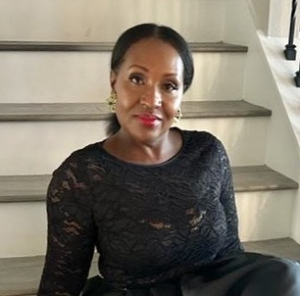By Cornette Barfield, Senior Program Manager – Consumer at DailyPay
Black History Month is a time for reflection and remembrance. It’s an opportunity to honor the individuals who paved the way for so many, as well as the silent warriors who contributed to progress in countless ways. I am honored to share my experiences and perspectives, and I do not take this opportunity lightly. Black History Month is not only a time to reflect on the past but also an opportunity to shape the future. By sharing our experiences and perspectives, we can create a more just and equitable society for all.
My journey began in Jamaica, where I was born to a family with mixed heritage. My great-grandmother was a white woman from Poland who married a Jamaican man classified as a Maroon. Maroons are descendants of Africans in the Americas who escaped from slavery. Some were taken to the Caribbean island of Jamaica from Spain in 1655. Africans who were enslaved in Jamaica during Spanish rule between 1493 and 1655 actively resisted their enslavement. Many of those who successfully freed themselves joined maroon communities, which were settlements established by escaped enslaved Africans.
I migrated to the United States at a young age and later returned to Jamaica for a period during my adolescence. After coming back to the U.S. for middle school, I faced cultural ignorance, particularly because of my Jamaican accent. It was during this time that I first encountered challenges related to my cultural background.
Growing up in Jamaica, many of us dreamt of coming to the United States because it was portrayed as the “land of opportunity.” However, my experiences with discrimination made me question whether that opportunity truly existed for everyone. Luckily, with the unwavering support system from my grandmother who resided with us, and my parents who sacrificed so much for my younger brother and me, I eventually realized that my struggles were for a greater cause.
In Jamaica, I was exposed to classism. Classism in Jamaica manifests itself as a complex system based on skin color, socioeconomic status, neighborhood, the level of access to education, healthcare and job opportunities. Jamaica’s motto is “Out of many, one people”. This signifies that despite being made up of diverse individuals from different backgrounds, cultures, and ethnicities, we are all united as one. While I did observe classism, I was fortunate enough to not experience racism in Jamaica. It was a different story when I migrated to the states. Because of my roots in Jamaica, I understood the importance of finding community and belonging, especially in the face of oppression. This can be powerful in combating negativity and finding strength in shared experiences. I was fortunate enough to find such a space and to build connections.
As a mother of three boys growing up in the United States, I often must engage in difficult conversations about race and injustice. Explaining the tragic deaths of Philando Castile, George Floyd, and countless others to my boys was incredibly difficult. It was heartbreaking to have to expose them to such injustice at a young age. However, I felt it was crucial for them to understand the realities of our world, while also emphasizing that despite these injustices, there is still good in society and that they belong and can feel safe. It was important for them to know how to manage their thoughts without impacting their mental and emotional well-being, especially considering the societal challenges they may face due to systemic racism and negative stereotypes.
Conversations in my household are also centered around God. I remind my boys to stand on Philippians 4:13, “I can do all things through Christ who strengthens me,” in all circumstances. My faith has kept me grounded, especially in difficult times, and allowed me to be the anchor, advocate, and counselor that my boys need.
Throughout my life I have been inspired by Black excellence, despite the challenges I have faced. Figures like Bessie Coleman, the first African American aviator; Claudette Colvin, an American civil rights activist arrested at 15 for refusing to give her seat to a white woman; Bayard Rustin, an American activist and civil rights leader who worked behind the scenes organizing freedom marches; and Robert Nesta Marley, who fought to unite the political parties in Jamaica and served as a world ambassador, have all served as inspirations. Recent examples of Black excellence include Simone Biles and Usain Bolt, who have also demonstrated what is possible with determination and courage. I would also classify my parents as representing Black excellence because of the ways they raised me. Growing up in a strict household was a pivotal part in my belief and understanding of resilience and education. It was not until I became an adult I truly started to realize the seeds my parents were planting. I am grateful for my parents, who have always supported me and taught me to keep my head high and stand firm in my beliefs, no matter the circumstance.
Over time, I’ve come to believe that Black History Month has lost some of its purpose. The trailblazers who fought for change, acceptance, and equality deserve to be remembered and honored. However, the continued existence of racism and discrimination shows that there is still work to be done. As my children and many others that are of african american descent or classified as minority enters the workforce, whether it be corporate america, becoming an entrepreneur, or following your passion in any form, it’s crucial that they stand true to their beliefs and remember the struggles our ancestors endured to overcome seemingly insurmountable obstacles. We must equip them with the knowledge and tools to navigate spaces that may not always be welcoming, and to challenge the status quo.
Black History Month should not just be a time for reflection, but also a time for action. It’s an opportunity to educate ourselves and others about the ongoing fight for racial justice, to celebrate the achievements of Black individuals in all fields, and to support Black-owned businesses and organizations. It’s a time to have uncomfortable but necessary conversations about race and to work towards creating a more equitable and just society for all.
In the powerful words of Martin Luther King Jr., we are reminded that “the ultimate measure of a man is not where he stands in moments of comfort and convenience, but where he stands at times of challenge and controversy.” Our community, our voices, and our children are all important. Let us celebrate each other’s achievements, recognizing that we have overcome adversity while continuously pushing limits.

































